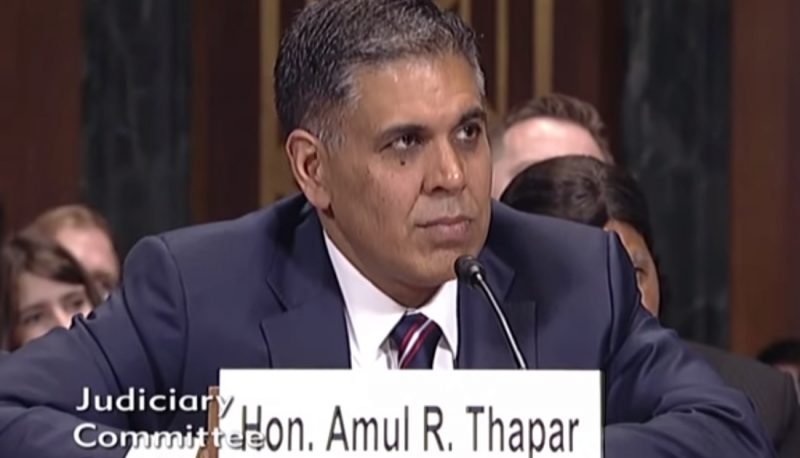“Confirmed Judges, Confirmed Fears” is a blog series documenting the harmful impact of President Trump’s judges on Americans’ rights and liberties.
If Trump judge Amul Thapar of the Sixth Circuit had had his way in an August 2018 case called McClellan v. Midwest Machining, corporations could more easily intimidate employees into giving up their Title VII rights. Fortunately, his view was the dissent in that case.
The question is whether the right to sue under Title VII or the federal Equal Pay Act (EPA) is limited by an old common law rule called “the tender-back doctrine.” (Generally, “common law” refers to rules established by courts and still followed in the absence of contrary laws adopted by legislatures or agencies.) That doctrine states that contracts agreed to under duress can be declared void by the innocent party if they return any benefits they received from the contract within a reasonable time.
In this case, Jena McClellan alleges she was fired from Midwest Machinery because she was pregnant. She was pressured into signing a severance agreement, which she didn’t fully understand. Under the agreement, she would get $4,000 and waive any claims against the company. She thought the “claims” referred to items like backpay. This was in August, 2015.
In November of 2016, after she met with an attorney, she filed suit for sex discrimination. Her complaint also alleged sex-based discrimination company-wide in job assignments and pay rates, in violation of Title VII and the EPA. Three weeks later, at her lawyer’s advice and before the company’s response was due, she wrote a check to the company returning the $4000 and rescinding the agreement she’d been pressured to sign.
The district court ruled that she couldn’t sue because she had kept the money for too long, and did not return it until after filing suit. But the Sixth Circuit majority reversed, ruling that the common law “tender-back doctrine” does not apply to federal lawsuits under Title VII and the EPA. Otherwise, employers could easily pressure or deceive employees they discriminate against into signing away the rights that Congress has guaranteed them. Working people with few financial resources would be particularly susceptible to such bullying tactics. This would frustrate the statutes’ purpose of eliminating sex-based discrimination from the American workplace.
Writing in dissent, Judge Thapar would apply the common law rule to cases under Title VII and the EPA. In this instance, he would have remanded the case and make McClellan persuade the judge that her delay in returning the money was reasonable.
In other words, Judge Thapar would have given employers a tool to avoid the consequences of their illegal job discrimination. That fits the corporate agenda, but it is contrary to laws that protect working people.

